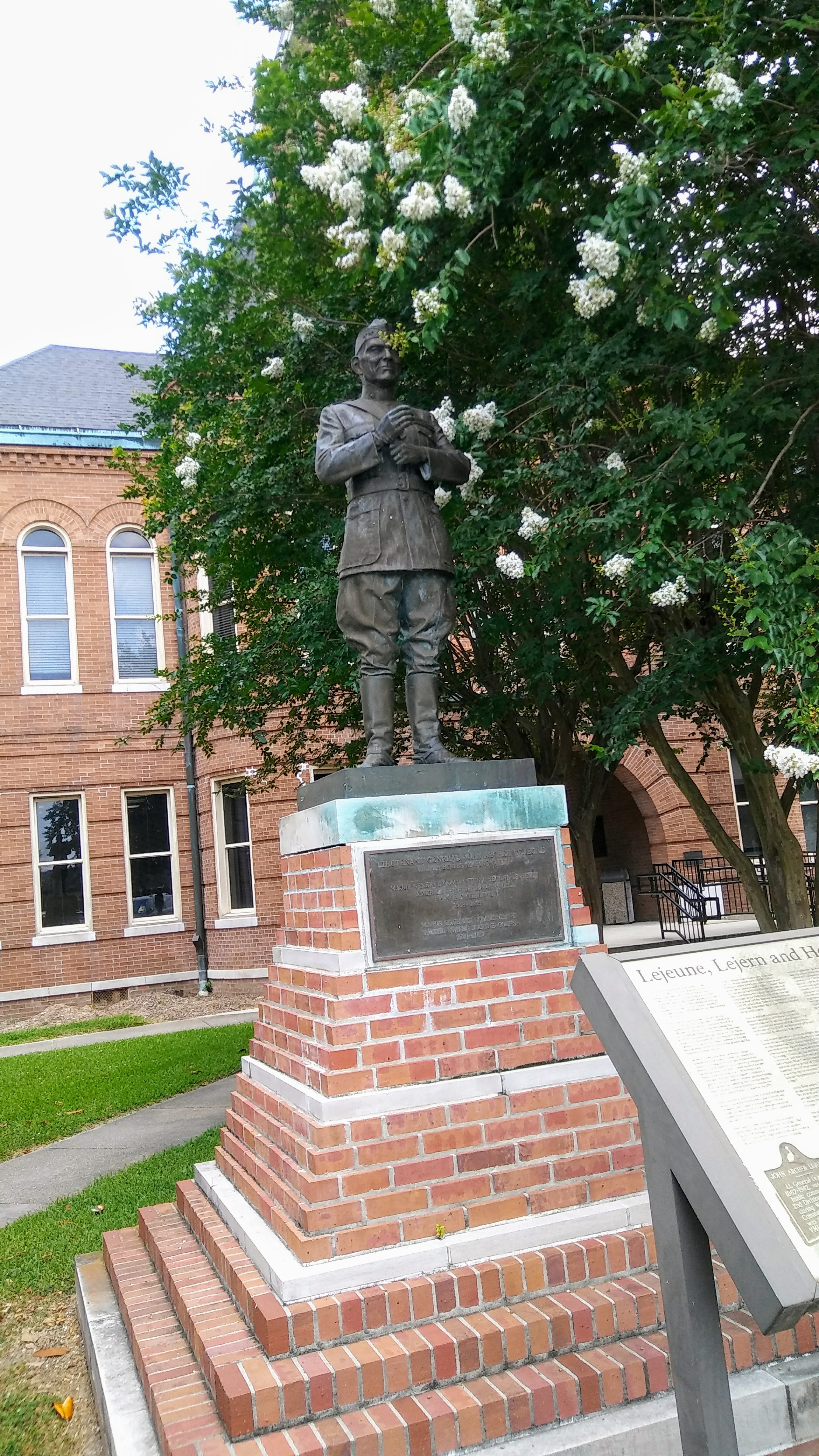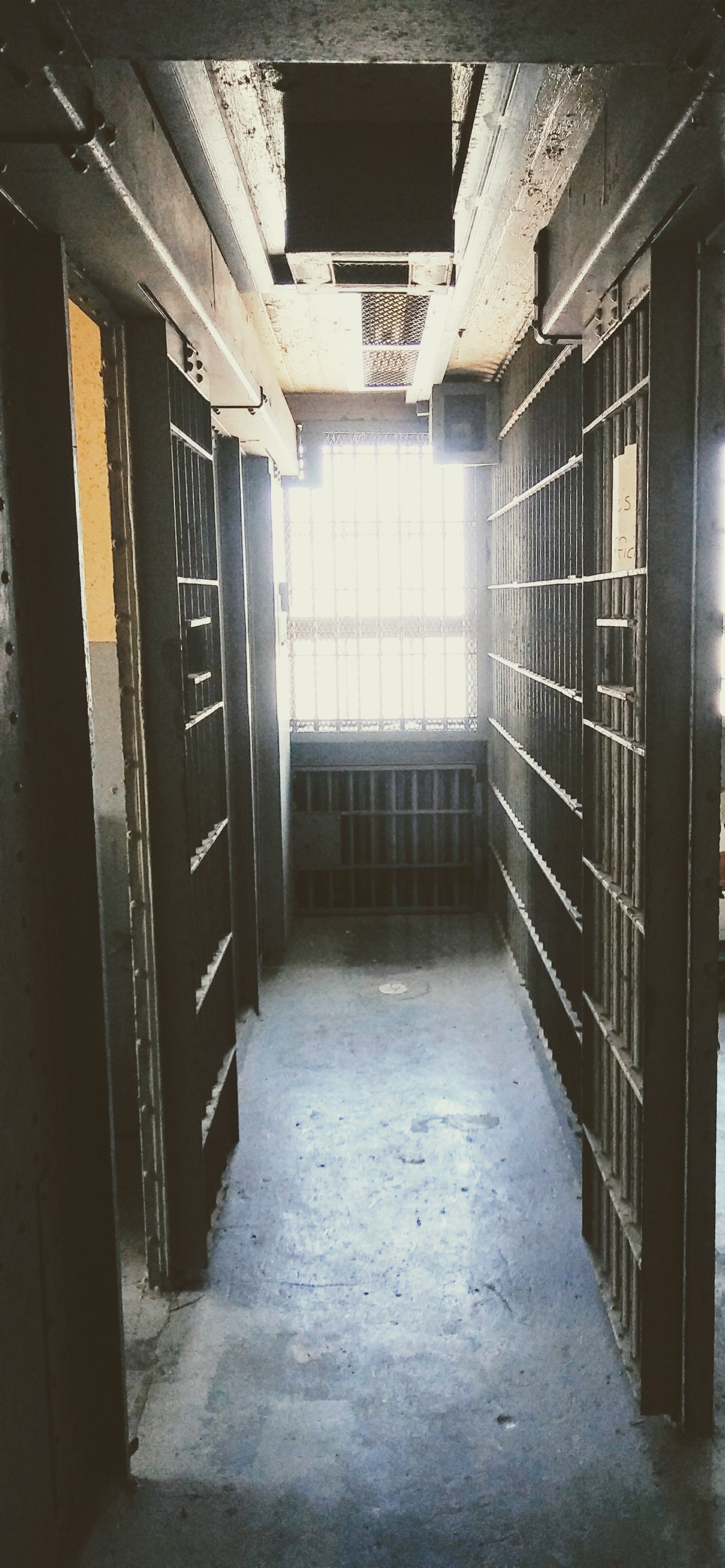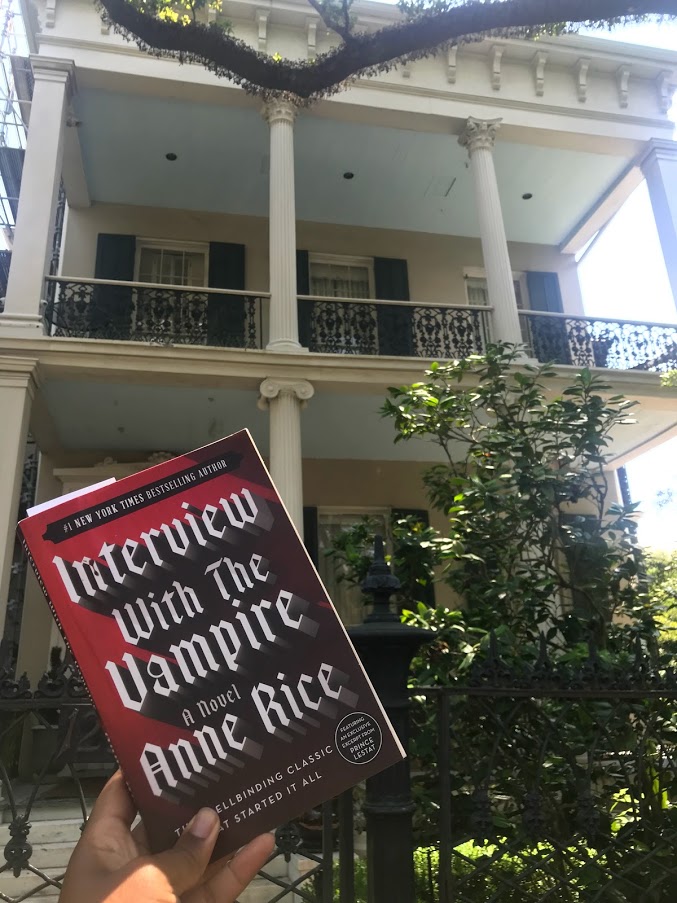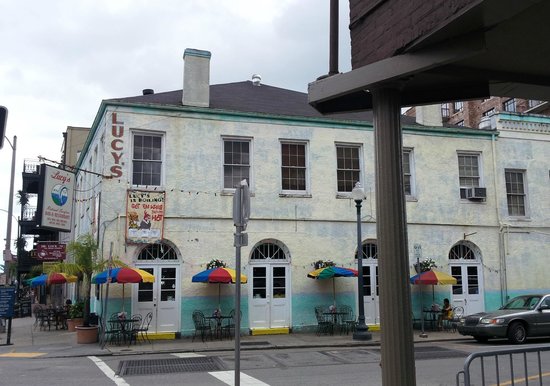A Lesson Before Dying is a book by Ernest J. Gaines that is about a young man, Jefferson, who is found guilty of murdering three people early on in the novel. Although it was never revealed whether or not he actually did it, he was sentenced to death. A teacher named Grant was tasked with making him into a “man” so that he wouldn’t die as what he was called in the courtroom—a “hog.” Grant did not want to go through with this task, but he was only up for it because his aunt asked this of him. In the end, he is the one who develops the most in his interactions with Jefferson. This novel does an amazing job at teaching us—the readers—a very valuable lesson that we might not always see during our darkest times. Loved ones—whether it’d be friends or family—those who are truly closest to us will always be there for us, just as we will always be there for them.
We traveled to the False Lake area of Pointe Coupee Parish in Louisiana. Our primary goal was to tour the Court House and Prison there in Pointe Coupee. Upon arrival to the courthouse, we were met by a statue/shrine of John Archer Lejeune, a very decorated legend amongst those who have served in the Marine Corps often revered as the world’s greatest marine. Right in front of the statue was a plaque that told his amazing story of servitude. He served in the Marine Corps for over forty years. Amongst his extremely compelling resume stands his leadership of the famous 2nd Division American Expeditionary Force during World War I. He retired as a Major General on the 10th of November in 1929 and was later advanced to Lieutenant General while on the retired list in February of 1942. This marked history, for he was the first marine to ever achieve this rank. Today his name is still a large every day part of the Marine Corps because they named the Marine Corps Base Camp Lejeune in North Carolina after him. On an info card by his statue, there is a reminder of the proper pronunciation of his name because most people today pronounce it incorrectly. They state that the proper pronunciation is ‘Le-JERN,’ which is not the way I pronounced it throughout my life. I am glad that I came across this shrine, for not only do I know more about an important piece of Marine Corps history, but I also have a good story to tell my buddies who currently serve in the Marine Corps.
When we were invited in to the court house, we were shown directly to a small entrance that leads to a very old elevator, which was used to take inmates up to the jail area where they held inmates within the Pointe Coupee area. The elevator was very small and intimidating in a way, just thinking of what it meant to be riding that elevator back when the jail was in use. When we stepped off of the elevator and into the old jail, the immediate sense of heat is overwhelming. It is not air-conditioned and is on an upper-floor, which to me says that it must become an oven in extremely hot weather. I can’t imagine what it must be like to be an inmate there, and knowing that it was used up until 1989 is astonishing to me. The only reason they retired its use is because they built a new one, meaning that it is possible that it could have still been in use to this day had a new one not been built. Having been reading through “A Lesson Before Dying,” one can see Jefferson sitting in one of the cells down the hall, as he waits for the date of his inevitable doom.
Standing in the cells, although I know I am not actually an inmate, makes me feel extremely uncomfortable. Nothing to do but to sit in a hot cage with the only outside time being spent small portions in yet another small area that was walled off. There was writing on the walls in some of the cells which were of counting, what I can only assume is the amount of days an inmate spent in the jail. When I saw this writing, I couldn’t help but to take a moment and appreciate how blessed I am to be free. We were then showed a particular cell which was the only cell which women were held and was also used for hangings. When I saw the area that was used for hangings and noticed the piece of floor that would open up, my stomach dropped and a sense of sadness filled me. Visiting this old jail was a very unique experience that definitely made me appreciate my freedom.
Pictured at the head of the table is Sheriff Beauregard “Bud” Torres
Immediately after the emotionally-draining jail visit, we went back downstairs and visited the standing Sheriff, Sheriff Beauregard “Bud” Torres. Thankfully, Sheriff Torres managed to squeeze meeting us into his very busy schedule. We spent some time conversing with him about what brought us to Louisiana and our bookpacking activities. He was very delighted to meet a new bookpacking group and he even played us some of his music. I really enjoyed listening to his music then, and have continued listening to his music ever since! When it was time to go off to see the court room, I stayed behind and spoke to Sheriff Torres for a while. We spoke about his music and the history of Louisiana and the area around Pointe Coupee. He even educated me on my family name. I really enjoyed our conversation and hope to see his reelection in October 2019!
When I left Sheriff Torres’s office, I went on my way to search for my bookpacking group, for I was left behind. I knew that they had headed for the courtroom, so I asked a janitor that I happened to stumble by for directions. She then jokingly asked me for five dollars in exchange for directions. We had a conversations about the bookpacking concept and had a few laughs. A good sense of humor seems to be a reoccurring theme in Louisiana. Afterwards she pointed me towards the second floor, where the courtroom was and I was finally reunited with my group. Since the courtroom is actually still in use today, it has been kept up. This didn’t stop me from having that sense of satisfaction from standing in the same room that Jefferson from “A Lesson Before Dying” was standing in when he was called a “hog” by his lawyer.
All in all, I really enjoyed my time in Pointe Coupee, despite the heaviness of visiting the jail. I especially enjoyed meeting Sheriff Torres and all the people at the courthouse. The people really make the entire Southern experience that I am loving. People here are so wholesome and genuine, which I can’t always say for the people I meet back in Los Angeles. Louisiana is a much slower (taking it easy) and warmer environment (both with the weather and the people).






